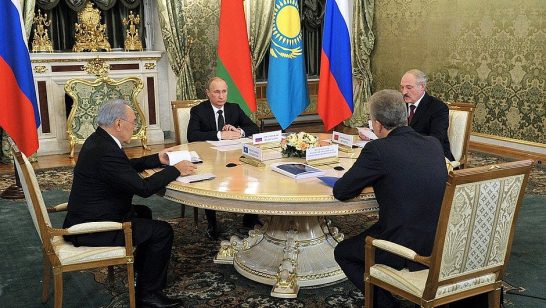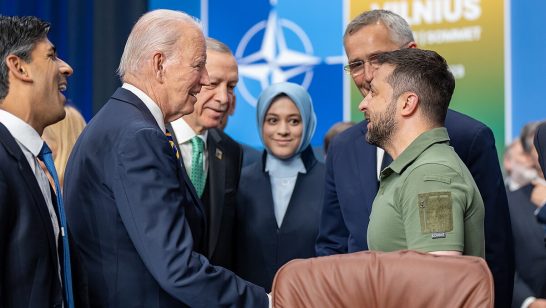
Two months since the failed coup d’état in Turkey measures taken to cleanse supporters of the coup from state institutions are at full speed and Turkish foreign policy has taken a new turn.
There are signals of Turkey’s rapprochement with its most important partners: relations with Russia that were at an all-time low since the Turkey’s downing of the Russian plane back in November 2015[1] are improving, Turkey is joining the fight against ISIS together with the US, [2], high level European officials, including Mogherini, Schulz and Hahn are visiting Ankara[3], and President Erdoğan is holding bilateral talks with the European leaders at the G-20 meeting in China[4].
Yet, the ongoing diplomatic tension between Turkey and the EU because of the migration crisis and the internal problems the EU is facing, makes it hard to make any predictions about the future of Turkey – EU relations. The dissonance between what is reported in Turkish and international media is not helpful either. It can be productive to think about three possible scenarios, and decide which one is more desirable for both sides. In the first scenario, Turkey can totally break off from the European Union. In the second, Turkey can continue its long time poorly played “bridge” role. Lastly, Turkey can become a member of the European club again.
Turkey and the EU could drift away further
In this case, the EU is more likely to have the Turkey that it has so far tried to avoid, with a conservative government turning towards China and Russia, feels economically empowered with Gulf money and with an archaic Customs Union agreement with the EU.
Turkey’s prospects would not be better. Polarization between the different communities living in the country could rise in case there is a break away from the European road to which the Republican tradition in Turkey is strongly dedicated. Despite uncomfortable periods between the EU and Turkey, the Turkish public has been keen on turning its face towards Europe, especially at times of economic trouble and external threats coming from the Middle East, such as ISIS attacks. Yet, for the first time in Turkish history, the Middle East is much closer to Turkey than it has ever been. We should not forget the new population of the country, not only the Syrian refugees who were fleeing from the war, but also the wealthy Middle Eastern neighbours who have been investing and partly settling in Turkey since the early 2000s.
Moreover, the identity crisis that most Turks felt until the AKP came to power and reinvented an Ottoman identity, has eased. Given the economic success of the early AKP years and the cultural and educational policies, Turks started to feel closer to their long-forgotten brothers in the Middle East. Surely, the EU’s exclusionist discourse and the resulting weariness of EU supporters in Turkey because of years of discussions on membership contribute to this feeling. Therefore, the pro-European forces in Turkey are likely to feel more isolated and desperate. In the long term, it is obvious that fulfilment of this scenario will benefit neither Turkey nor its close neighbours in the Middle East or in Europe.
Turkey can stay as the wobbly bridge between the EU and the Middle East
The bridge metaphor has been used for Turkey and its EU relations for a very long time. Yet this bridge and its two ends of it have been unable to reach out to each other in difficult times. This has not helped either party. The migration crisis showed very clearly that the EU needs Turkey. Yet during negotiations on a migrant deal, the EU lost its credibility as the Europe of values, not only because of how it treated migrants but also how it closed its eyes to the rule of law problems in Turkey that it deemed so important when Turkey’s full-membership was the issue.
In addition to losing its credibility when it treats Turkey as a bridge, the EU has more at stake if Turkey continues to be a volatile force in the region. The relationship is so susceptible to momentary fluctuations that in a world where economic and security concerns are so high, neither party can devise a plan for the future. Furthermore, Turkey’s 2023 vision is far from the peaceful Europe that the European fathers imagined.
Turkey can become a member of the European club (again)
While its likelihood is low, this last scenario is the best for both sides. The European Union is still the Turkey’s most important economic partner – 48.5% of Turkey’s exports go to the EU, and 64% of Turkey’s inward foreign direct investment comes from the EU. Moreover, after the EU accession process FDI to Turkey increased seven fold, and Turkey owes the trust of foreign investors to the EU process.[5] On the other hand, the EU benefits from its international trade with Turkey. Turkey, the fifth trade partner of the EU, also has skilled labor and is a big market for European goods.[6]
Moreover, the EU wants to diversify its energy import sources, and given the newest natural gas explorations in Eastern Mediterranean, Turkey is the cheapest transportation route.[7]
The migration deal, despite all the arguments surrounding it, saved the EU from the high flow of refugees, and from spending an important amount of their budget for social security services at a time of ongoing financial crisis.[8]
As for Turkey, EU membership served as a target for Turkish governments even in the midst of political turmoil, including military coups. Especially since 1999 when Turkey became a candidate on a par with other new candidate countries including Eastern and Central Europe, the EU’s democratizing affect has been clear. Removal of military judges from the State Security Courts, circumscribing the powers of the National Security Council, countless EU funded projects raising awareness and changing perceptions about the military’s role in politics have contributed to liberalization in civil-military relations. The fact that the military itself was divided over the failed coup attempt and the consecutive condemnation of the coup by the Turkish population is certainly an evidence for this.
Working with Turkey on its European path is also beneficial for the EU’s legitimacy and credibility as a diverse club. The very democratic values that the EU stands for seem to have lost their credibility in European countries themselves. The EU’s response to the migration crisis, and the conservative nationalist wave in Europe, such as Hungary and Poland, but also in France and Germany, does not fit well with Europe’s standing in the global community.
The aftermath of the attempted coup has not been an easy period to navigate either for the European leaders, or for the pro-European Turks. In the midst of a dirty fog that surrounded the events even for an avid Turkey observer, and the perplexing speed of the measures against the coup-plotters, European friends were late to condemn the coup-attempt. Moreover, the continuing measures taken during the state of emergency in Turkey are not in line with the European conventions of which Turkey is a part. Yet, it is the very time that we all need to take a look at the bigger picture and see which one of these simple scenarios is best for all of us.
[1] http://www.bbc.com/news/world-middle-east-34912581
[2] http://www.nytimes.com/2016/08/25/world/middleeast/turkey-syria-isis.html?_r=0
[3] http://www.politico.eu/article/martin-schulz-reassures-erdogan-of-support-for-turkey-european-parliament-coup-visit/
[4] http://www.dw.com/tr/suriye-ve-abyi-konu%C5%9Ftular/a-19525608
[5] http://www.dw.com/tr/t%C3%BCrkiye-ile-ab-birbirine-ne-kadar-muhta%C3%A7/a-19450619
[6] http://www.economist.com/news/special-report/21689874-turkey-performing-well-below-its-potential-erdoganomics
[7] http://turkishpolicy.com/article/794/pivoting-energy-relations-in-the-eastern-mediterranean#_ftn39
[8] http://foreignpolicy.com/2016/09/09/can-this-man-save-the-europe-turkey-migrant-deal-gerald-knaus-esi-refugees/
The opinions articulated above represent the views of the author(s), and do not necessarily reflect the position of the European Leadership Network or any of its members. The ELN’s aim is to encourage debates that will help develop Europe’s capacity to address the pressing foreign, defence, and security challenges of our time.



